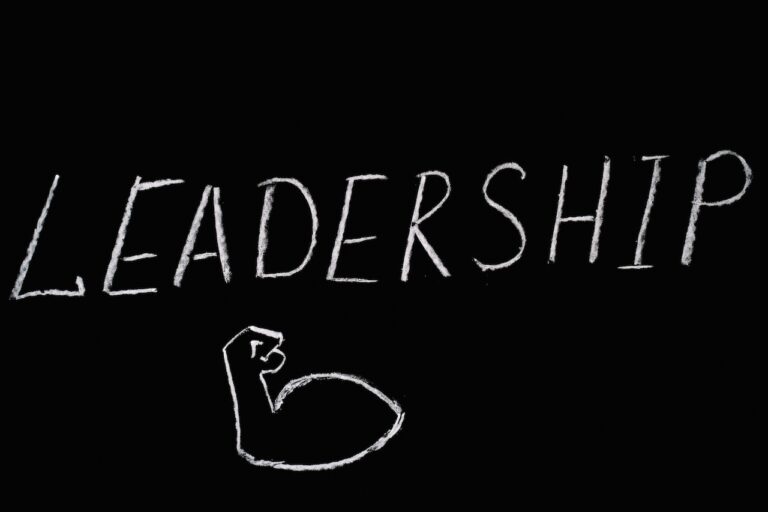Unleashing the Power Within: The Path to Consistent, Persistent, and Resilient Leadership
Harnessing Mental Toughness: Unlocking the Secrets to Consistency, Persistence, and Resilience
In the pursuit of success, we often marvel at the achievements of exceptional individuals who seem to possess an uncanny ability to overcome obstacles, navigate challenges, and consistently achieve their goals. These individuals exude an aura of strength and resilience, leading us to wonder what sets them apart from the rest of us. The answer lies in their mental toughness.
Mental toughness is a quality that enables individuals to thrive in the face of adversity, uncertainty, and setbacks. Contrary to popular belief, mentally tough people are not necessarily more talented or skilled than others. Instead, they possess a unique set of characteristics that allow them to stay consistently focused, persistently driven, and remarkably resilient in their pursuit of excellence.
It is essential to understand that mental toughness is not an innate trait that only a fortunate few are born with. Rather, it is a skill that can be cultivated and developed through intentional practice and self-awareness. By honing their mental toughness, individuals can unlock their true potential and achieve remarkable feats.
In this comprehensive article, we will delve into the depths of mental toughness and explore the qualities that underpin it. We will discover that mental toughness is not about possessing extraordinary talents, but rather about nurturing specific attributes that lead to consistent, persistent, and resilient behavior. By examining the key elements of mental toughness, we will uncover strategies that can be applied in leadership development and other areas of life to unlock a new level of performance and achievement.
Throughout this article, we will emphasize the importance of mindset and its impact on success. We will explore the foundational characteristics of mentally tough individuals, such as emotional stability, self-control, optimism, adaptability, flexibility, confidence, and self-belief. By understanding these characteristics, we can start to grasp the framework that supports mental toughness and its transformative power.
Our exploration will then delve into the first pillar of mental toughness: consistency. We will uncover the significance of consistency in leadership development and provide practical strategies for cultivating it. From goal-setting and prioritization to establishing routines and embracing discipline, we will discover how consistency becomes the bedrock upon which long-term success is built.
Next, we will turn our attention to persistence—the unwavering determination that propels us forward in the face of obstacles and challenges. We will examine how persistence, fueled by resilience, is essential for achieving goals and realizing our potential. Through the exploration of growth mindset, problem-solving skills, and the embrace of failure as a learning opportunity, we will equip leaders with the tools to foster persistence within themselves and their teams.
Resilience, the final cornerstone of mental toughness, will be our next focus. We will uncover the power of bouncing back stronger than before, even in the face of adversity. By developing emotional intelligence, cultivating coping mechanisms, and fostering a support network, leaders can strengthen their resilience and inspire those around them to rise above challenges.
Furthermore, we will explore the intersection of mental toughness and skill development, highlighting how these two components synergistically enhance each other. By emphasizing deliberate practice, continuous improvement, and mental resilience in high-pressure situations, leaders can harness the full potential of their skills and capabilities.
In this journey through the depths of mental toughness, we will accompany our exploration with real-life examples, inspiring stories, and practical insights. Together, we will uncover the secrets of consistent, persistent, and resilient leaders, and unlock the transformative potential within ourselves.
Join us as we embark on this transformative expedition into the realm of mental toughness, where talent takes a backseat, and consistency, persistence, and resilience reign supreme.
Foundation of Mental Toughness
Understanding mindset and its impact on success
Before delving into the specific characteristics that define mentally tough individuals, it is crucial to understand the fundamental role of mindset in shaping our experiences and achievements. Mindset refers to the underlying beliefs and attitudes that influence our thoughts, behaviors, and responses to challenges.
Two primary mindsets come into play when considering mental toughness: the growth mindset and the fixed mindset. The growth mindset is characterized by the belief that abilities and talents can be developed through dedication, effort, and learning from failures. In contrast, the fixed mindset operates under the assumption that abilities are fixed and innate, leaving little room for growth or improvement.
Mentally tough individuals possess a growth mindset, which allows them to see challenges as opportunities for growth, setbacks as learning experiences, and effort as a path to mastery. They embrace the belief that their abilities are not fixed but can be developed through perseverance and deliberate practice.
By adopting a growth mindset, leaders can foster a culture of continuous improvement within their teams. They can encourage their colleagues to embrace challenges, view feedback as constructive, and recognize that failures are stepping stones on the path to success. This mindset shift lays the groundwork for developing mental toughness.
Key characteristics of mentally tough individuals
While mental toughness encompasses a range of attributes, several key characteristics consistently emerge in individuals who exhibit this quality.
-
Emotional stability and self-control: Mentally tough individuals possess the ability to manage their emotions effectively, even in high-pressure situations. They remain calm, composed, and rational, making sound decisions based on reason rather than succumbing to impulsive reactions. This emotional stability enables them to navigate challenging circumstances with clarity and resilience.
-
Optimism and positive thinking: Mentally tough individuals maintain an optimistic outlook, focusing on possibilities and solutions rather than dwelling on limitations or setbacks. They view failures as temporary and specific to the situation rather than generalizing them to their overall abilities or self-worth. This positive thinking fuels their motivation, resilience, and belief in their capacity to overcome obstacles.
-
Adaptability and flexibility: Mentally tough individuals demonstrate adaptability and flexibility when faced with changing circumstances or unexpected challenges. They possess the agility to adjust their strategies, approaches, and perspectives to align with evolving situations. This openness to change enables them to navigate uncertainty with confidence and resilience.
-
Confidence and self-belief: Mental toughness thrives on a foundation of self-confidence and self-belief. Mentally tough individuals have a deep-rooted belief in their abilities, competence, and worthiness of success. This belief sustains them in times of doubt or adversity, allowing them to persist and take calculated risks in pursuit of their goals.
By cultivating these characteristics, leaders can develop a solid foundation of mental toughness within themselves and inspire others to adopt similar mindsets. These attributes serve as building blocks for the consistent, persistent, and resilient behavior that defines mentally tough individuals.
Throughout the remainder of this article, we will explore how these key characteristics manifest in the realms of consistency, persistence, and resilience. We will delve into strategies, techniques, and real-life examples that illuminate the path toward developing mental toughness and unlocking its transformative power. Join us as we unravel the secrets of those who embody mental toughness and harness their exceptional qualities for personal and professional growth.
Consistency: The Key to Achieving Long-Term Success
Significance of consistency in leadership development
Consistency is the backbone of long-term success. It is the ability to show up day after day, consistently delivering high-quality performance and maintaining a steadfast commitment to one’s goals. In the realm of leadership development, consistency holds particular importance. Consistent leaders establish trust, build credibility, and inspire confidence in their teams. Their reliability sets the stage for sustainable growth and fosters an environment conducive to achieving collective objectives.
Consistency allows leaders to establish clear expectations and set a positive example for their team members. When leaders consistently demonstrate their values, work ethic, and dedication, they create a culture of accountability and commitment. This consistency becomes the cornerstone upon which organizational goals are achieved, as it promotes a sense of stability, reliability, and cohesion among team members.
Strategies for developing consistency
While consistency may seem like a simple concept, it requires deliberate effort and strategic approaches to cultivate. Here are some strategies that leaders can employ to develop and maintain consistency in their leadership journey:
-
Goal-setting and prioritization: Clearly defining goals and priorities provides a roadmap for consistent action. Break down long-term objectives into smaller, manageable tasks, and create a timeline to ensure progress. Regularly review and adjust goals as necessary, maintaining focus on the larger vision while paying attention to the day-to-day actions that lead to success.
-
Establishing routines and habits: Consistency is reinforced through the development of routines and habits. Create a structured framework that aligns with your goals and values. Design a morning routine that sets the tone for the day, incorporate regular reflection and self-assessment practices, and establish consistent communication channels with team members. These routines and habits help maintain momentum and reinforce consistent behavior.
-
Embracing discipline and accountability: Consistency requires discipline and a commitment to follow through on commitments. Hold yourself accountable to deadlines, deliverables, and promises made to yourself and others. Implement systems that track progress, monitor performance, and provide feedback. Embrace self-discipline as a means to stay on track, even when faced with distractions or challenges.
-
Managing time effectively: Time management is essential for consistent performance. Prioritize tasks, delegate when necessary, and optimize your schedule to minimize wasted time. Set aside focused blocks of time for important tasks, and avoid multitasking, which can hinder efficiency and consistency. By managing time effectively, leaders can allocate sufficient energy and attention to each responsibility, ensuring consistency in their performance.
Examples illustrating consistent leadership
To illustrate the impact of consistency in leadership development, let us examine real-life examples of leaders who have demonstrated remarkable consistency in their journeys:
-
Elon Musk: The CEO of SpaceX and Tesla Motors, Elon Musk, is renowned for his consistent pursuit of audacious goals. From revolutionizing the electric vehicle industry to exploring space travel, Musk’s consistent focus, unwavering dedication, and commitment to innovation have driven his success.
-
Angela Merkel: As the Chancellor of Germany for over a decade, Angela Merkel exemplifies consistency in leadership. Her ability to navigate complex political landscapes, make tough decisions, and maintain a steady hand in times of crisis has earned her respect and admiration globally. Merkel’s consistent leadership style and unwavering commitment to her vision have shaped Germany’s political landscape.
-
Satya Nadella: Satya Nadella, the CEO of Microsoft, has been instrumental in transforming the company’s culture and driving its success. Through his consistent emphasis on empathy, collaboration, and innovation, Nadella has fostered a culture of continuous improvement and growth within Microsoft, propelling the company to new heights.
These leaders’ stories demonstrate the power of consistency in driving long-term success. By embodying consistency in their actions, decisions, and communication, they have built trust, inspired their teams, and achieved extraordinary results. Their journeys serve as a reminder of the transformative impact that consistency can have on leadership development and organizational success.
In the next section, we will explore the role of persistence in the face of challenges and setbacks. We will uncover strategies and techniques for cultivating persistence and developing the resilience needed to overcome obstacles on the path to success. Join us as we continue our exploration of mental toughness, unlocking the keys to consistent, persistent, and resilient leadership.
Persistence: Overcoming Obstacles and Challenges
Role of persistence in achieving goals
Persistence is the unwavering determination to pursue one’s goals despite facing obstacles, setbacks, or failures along the way. It is the driving force that propels individuals to keep moving forward, even when faced with adversity. In the realm of leadership development, persistence plays a vital role in achieving long-term success and driving meaningful impact.
Leaders who embody persistence understand that challenges and setbacks are not roadblocks but rather opportunities for growth. They embrace the mindset that failure is not a permanent state but a stepping stone toward improvement and success. By persevering through difficulties, leaders inspire their teams to adopt a similar mindset and navigate obstacles with resilience and tenacity.
Building resilience to setbacks and failures
Resilience, a key component of persistence, is the ability to bounce back from setbacks, failures, or difficult circumstances. It involves adapting, learning, and growing from experiences, emerging stronger and more determined than before. Resilient leaders possess the mental fortitude to remain focused and motivated, even when faced with significant challenges.
To cultivate resilience, leaders can employ various strategies:
-
Cultivating a growth mindset: A growth mindset fosters resilience by framing setbacks as opportunities for learning and growth. Leaders with a growth mindset view challenges as temporary setbacks that can be overcome through effort, perseverance, and continuous learning. By embracing this mindset, leaders create a culture that encourages resilience and supports the development of innovative solutions.
-
Developing problem-solving and decision-making skills: Resilient leaders are adept at analyzing complex situations, identifying potential solutions, and making informed decisions. They approach challenges with a systematic and strategic mindset, seeking creative solutions and considering multiple perspectives. Building problem-solving and decision-making skills equips leaders with the ability to navigate obstacles effectively and inspire their teams to do the same.
-
Embracing failure as a learning opportunity: Rather than fearing failure, resilient leaders see it as an opportunity to learn, adapt, and grow. They encourage experimentation, creating an environment where individuals are empowered to take calculated risks. When failures occur, resilient leaders foster a blame-free culture, focusing on extracting lessons and identifying areas for improvement. By normalizing failure as part of the learning process, leaders cultivate resilience within themselves and their teams.
-
Seeking support and feedback: Resilient leaders recognize the importance of seeking support and feedback from mentors, coaches, or trusted colleagues. They surround themselves with a strong support network that provides guidance, perspective, and encouragement during challenging times. Additionally, they actively seek feedback from their team members, recognizing that constructive criticism can lead to personal and professional growth.
Techniques for enhancing resilience in leadership roles
To enhance resilience within leadership roles, leaders can apply the following techniques:
-
Building mental and physical well-being: Resilience is closely linked to well-being. Leaders must prioritize self-care, maintaining physical health through exercise, adequate rest, and healthy habits. They should also invest in their mental well-being through practices such as mindfulness, meditation, or journaling. By nurturing their own well-being, leaders can better cope with stress and setbacks, fostering resilience in the face of challenges.
-
Promoting work-life balance and stress reduction: Creating a work environment that values work-life balance and stress reduction is crucial for developing resilient leaders and teams. Leaders should encourage their team members to take breaks, set boundaries, and engage in activities that promote well-being outside of work. By modeling a balanced approach and fostering a supportive work culture, leaders contribute to the resilience of their teams.
-
Fostering a culture of resilience in organizations: Resilience is not solely an individual attribute but can also be nurtured at the organizational level. Leaders should promote a culture that embraces adaptability, learning from failures, and supporting one another. By fostering an environment where team members feel safe to take risks, learn from mistakes, and collaborate, leaders create a resilient ecosystem that propels the organization forward.
Leaders who demonstrated resilience in challenging situations
Real-life examples of leaders who displayed remarkable resilience in challenging situations serve as powerful inspiration and illustrate the transformative impact of persistence. Let’s examine a few notable examples:
-
Nelson Mandela: Nelson Mandela, the iconic leader and former President of South Africa, demonstrated extraordinary resilience during his fight against apartheid. Despite facing 27 years of imprisonment, he emerged with an unwavering commitment to peace, reconciliation, and social justice. Mandela’s resilience, forgiveness, and ability to maintain a sense of purpose throughout his struggle inspired a nation and transformed history.
-
Indra Nooyi: Indra Nooyi, the former CEO of PepsiCo, is renowned for her resilience and trailblazing leadership. She successfully led PepsiCo through turbulent times, adapting the company’s strategy to changing market dynamics. Nooyi’s resilience and strategic vision enabled her to overcome numerous challenges, solidifying PepsiCo’s position as a global leader in the food and beverage industry.
-
Malala Yousafzai: Malala Yousafzai, the youngest Nobel Prize laureate, exemplifies resilience in the face of adversity. After surviving an assassination attempt by the Taliban for advocating girls’ education, Malala emerged even more determined to fight for the rights of children and girls worldwide. Her resilience, courage, and unwavering commitment to education have inspired millions and brought global attention to critical social issues.
These examples demonstrate the transformative power of resilience in overcoming challenges and driving meaningful change. By emulating the resilience of these leaders, we can unlock our own potential for persistence and navigate obstacles with strength, determination, and an unwavering focus on our goals.
In the upcoming section, we will explore the importance of resilience and its intersection with mental toughness. We will delve into techniques for developing resilience and maintaining mental well-being, equipping leaders with the tools to navigate the complexities of the modern business landscape. Join us as we continue our exploration of mental toughness, unraveling the secrets to consistent, persistent, and resilient leadership.
Resilience: Bouncing Back Stronger Than Before
Resilience and its importance in leadership
Resilience, often referred to as the ability to bounce back or recover quickly from challenges, is a vital characteristic for effective leadership. It is the capacity to adapt, endure, and maintain composure in the face of adversity, setbacks, or stressful situations. Resilient leaders possess the mental and emotional strength to navigate uncertainties, overcome obstacles, and inspire their teams to persevere.
In the realm of leadership, resilience plays a pivotal role in driving success and achieving long-term goals. Resilient leaders understand that challenges and setbacks are inevitable in any journey, and they approach them with a positive, solution-oriented mindset. They see adversity as an opportunity for growth, learning, and innovation, rather than a roadblock to success. By fostering resilience within themselves and their teams, leaders create a culture that thrives on continuous improvement and adaptability.
Psychological factors that contribute to resilience
Resilience is influenced by various psychological factors that shape an individual’s response to adversity. These factors can be developed and strengthened through intentional practice and self-reflection. Let’s explore some of the key psychological components that contribute to resilience:
-
Emotional intelligence and self-awareness: Resilient leaders possess a high degree of emotional intelligence, allowing them to understand and manage their own emotions effectively. They have a keen sense of self-awareness, recognizing their strengths, limitations, and emotional triggers. This self-awareness enables them to respond to challenges with clarity and empathy, maintaining a balanced perspective even in difficult situations.
-
Developing coping mechanisms and stress management techniques: Resilient leaders cultivate coping mechanisms and stress management techniques to navigate challenging circumstances. They engage in activities such as mindfulness, deep breathing exercises, or engaging hobbies to reduce stress and maintain mental well-being. By developing healthy coping mechanisms, leaders can effectively manage stress and remain composed during turbulent times.
-
Cultivating a strong support network: Resilient leaders understand the power of a support network and actively seek guidance, encouragement, and advice from trusted individuals. They foster strong relationships with mentors, peers, or coaches who provide perspective, offer support, and challenge their thinking. Building a robust support network helps leaders gain new insights, maintain perspective, and find solace during challenging times.
-
Practicing mindfulness and self-care: Mindfulness practices, such as meditation or reflection, are essential tools for resilience. They enable leaders to stay present, regulate their emotions, and cultivate a sense of inner calm amidst chaos. Additionally, practicing self-care, including adequate rest, nutrition, and exercise, strengthens resilience by nurturing physical and mental well-being.
Techniques for enhancing resilience in leadership roles
To enhance resilience within leadership roles, leaders can employ several techniques:
-
Building mental and physical well-being: Resilience starts with prioritizing mental and physical well-being. Leaders should make self-care a non-negotiable aspect of their routine, incorporating activities that promote relaxation, rejuvenation, and personal growth. Engaging in regular exercise, maintaining a healthy diet, and getting sufficient sleep are crucial for sustaining resilience.
-
Promoting work-life balance and stress reduction: Resilient leaders recognize the importance of work-life balance and stress reduction. They encourage their team members to maintain a healthy balance between work and personal life, fostering an environment that supports overall well-being. Flexible work arrangements, encouraging time off, and promoting stress reduction initiatives create a culture that values resilience and sustainable performance.
-
Fostering a culture of resilience in organizations: Resilience is not solely an individual trait; it can be nurtured at the organizational level. Resilient leaders create a supportive work culture that encourages open communication, psychological safety, and learning from failures. They celebrate resilience as a core value, recognizing and rewarding individuals and teams that demonstrate adaptability, perseverance, and innovation in the face of challenges.
-
Practicing reflection and learning: Reflective practices enable leaders to learn from their experiences, gain insights, and refine their approaches. Regularly setting aside time for introspection, journaling, or seeking feedback helps leaders identify strengths, areas for improvement, and patterns that impact resilience. By actively learning from both successes and setbacks, leaders continuously grow and evolve, becoming more resilient in the process.
Leaders who demonstrated resilience in challenging situations
Real-life examples of leaders who have demonstrated exceptional resilience serve as inspiration for cultivating this quality. Let’s explore a few notable examples:
-
Sheryl Sandberg: Sheryl Sandberg, the COO of Facebook, exemplifies resilience in her personal and professional life. After the sudden loss of her husband, Sandberg publicly shared her journey of grief, resilience, and personal growth in her book “Option B.” Through her vulnerability and resilience, she has become an advocate for building resilience in the face of adversity.
-
Mary Barra: As the CEO of General Motors, Mary Barra faced significant challenges during the company’s recall crisis in 2014. Barra led the organization through this difficult period with transparency, accountability, and a focus on learning from past mistakes. Her resilient leadership and commitment to change helped General Motors regain trust and reposition itself for success.
-
Jacinda Ardern: Jacinda Ardern, the Prime Minister of New Zealand, displayed remarkable resilience and leadership in the aftermath of the Christchurch mosque shootings in 2019. Ardern demonstrated compassion, empathy, and strength, rallying the nation together and implementing swift policy changes to address gun control and support affected communities. Her resilience and leadership during this crisis earned her international acclaim.
These leaders’ stories highlight the transformative impact of resilience in overcoming challenges and driving positive change. By embodying resilience, leaders can inspire their teams to persevere, adapt, and thrive in the face of adversity.
As we continue our exploration of mental toughness, the next section will delve into the intersection of mental toughness and skill development. We will examine how mental toughness enhances skill acquisition and explore strategies for integrating these two components to unlock peak performance. Join us as we uncover the symbiotic relationship between mental toughness and skill development, paving the way for consistent, persistent, and resilient leadership.
Intersection of Mental Toughness and Skill Development
Recognizing the symbiotic relationship between mental toughness and skill acquisition
While mental toughness and skill development may appear as separate entities, they are intertwined in a symbiotic relationship. Mental toughness enhances the process of skill acquisition and the application of those skills in real-world contexts. In turn, skill development contributes to the strengthening of mental toughness by providing tangible evidence of progress and competence.
Mentally tough individuals possess the mindset, resilience, and discipline necessary to engage in deliberate practice, a key component of skill development. Deliberate practice involves focused and intentional effort to improve specific aspects of one’s abilities. Mentally tough individuals embrace the challenges, setbacks, and repetitions inherent in deliberate practice, viewing them as stepping stones toward mastery.
Simultaneously, skill development contributes to mental toughness by bolstering confidence, reinforcing positive self-beliefs, and expanding one’s capabilities. As individuals acquire new skills and witness their progress, their confidence grows, enhancing their mental resilience and reinforcing their belief in their ability to overcome obstacles. This positive reinforcement, in turn, fuels their motivation to persevere, adapt, and continuously improve.
How mental toughness enhances skill development
Mental toughness provides a solid foundation for effective skill development. Here are some ways in which mental toughness enhances the process:
-
Sustained focus and discipline: Mental toughness enables individuals to maintain a high level of focus and discipline throughout the skill development process. By remaining steadfast and committed to the practice, mentally tough individuals avoid distractions and consistently invest the necessary time and effort to refine their skills.
-
Embracing challenges and setbacks: Mentally tough individuals have the resilience to embrace challenges and setbacks as opportunities for growth. Instead of being discouraged by initial failures, they persist and use setbacks as learning experiences. This resilience allows them to navigate the discomfort and frustration associated with skill development, leading to continuous improvement.
-
Managing performance pressure: Skill development often involves performing under pressure, whether in high-stakes situations or competitive environments. Mental toughness equips individuals with the ability to manage performance pressure, control anxiety, and maintain composure. This enables them to perform at their best when it matters most, further enhancing their skill development.
-
Maintaining motivation and perseverance: Skill development requires dedication and long-term commitment. Mental toughness provides individuals with the intrinsic motivation and perseverance to sustain their efforts over extended periods. Even when progress may seem slow or when faced with setbacks, mentally tough individuals remain driven, maintaining their focus on long-term goals.
Strategies for integrating mental toughness and skill development
To fully leverage the benefits of mental toughness in skill development, leaders can adopt the following strategies:
-
Emphasizing deliberate practice and continuous improvement: Leaders should encourage deliberate practice, setting clear objectives and providing targeted feedback to facilitate skill development. By fostering a growth mindset and creating a culture of continuous improvement, leaders inspire their teams to embrace challenges, seek opportunities for deliberate practice, and strive for mastery.
-
Utilizing feedback and self-reflection: Feedback plays a crucial role in skill development. Mentally tough individuals actively seek feedback from mentors, peers, or experts, recognizing it as a valuable source of insight and growth. Leaders should foster a feedback-rich environment, encouraging regular self-reflection and constructive feedback exchanges to facilitate skill refinement and development.
-
Building mental resilience in high-pressure situations: Leaders can proactively develop mental resilience by exposing individuals to challenging situations that mirror real-world scenarios. Simulations, role-playing exercises, or projects with tight deadlines can help individuals develop the mental toughness needed to perform under pressure. This exposure enables individuals to build confidence and adaptability, enhancing their overall skill development.
Success stories showcasing the impact of mental toughness on skill development
Examining case studies or success stories further illuminates the impact of mental toughness on skill development. Let’s explore a few notable examples:
-
Serena Williams: Serena Williams, one of the greatest tennis players of all time, exemplifies the fusion of mental toughness and skill development. Her unwavering determination, resilience, and intense focus have propelled her to numerous victories. Williams’ mental toughness allows her to perform at her best under pressure, while her continuous commitment to skill development has enabled her to refine her techniques and adapt to evolving competition.
-
Steve Jobs: Steve Jobs, the late co-founder of Apple Inc., was renowned for his visionary leadership and relentless pursuit of excellence. Jobs’ mental toughness enabled him to face numerous challenges, including business setbacks and personal struggles. His commitment to skill development, particularly in the areas of design and innovation, revolutionized the technology industry and solidified Apple’s position as a global leader.
-
Michael Phelps: Michael Phelps, the most decorated Olympian of all time, demonstrates the power of mental toughness in skill development. Phelps’ relentless work ethic, resilience, and ability to thrive under pressure allowed him to continuously refine his swimming techniques and break records. His mental toughness was crucial in managing the intense demands of training, competition, and high-stakes Olympic events.
These examples illustrate the transformative impact of mental toughness on skill development and peak performance. By integrating mental toughness strategies with deliberate practice and continuous improvement, leaders can unleash the full potential of individuals and teams, driving excellence and achieving remarkable results.
As we approach the conclusion of our exploration, we will summarize the key points discussed throughout this article and emphasize the importance of consistency, persistence, and resilience in leadership. Join us in the concluding section as we reflect on the journey of cultivating mental toughness and unlocking our true leadership potential.
Cultivating Mental Toughness: Empowering Leaders for Lasting Impact
Throughout this comprehensive exploration of mental toughness, we have delved into the foundational characteristics, the importance of consistency, the role of persistence, and the significance of resilience in leadership development. We have discovered that mentally tough individuals are not necessarily more talented or skilled than others, but they possess unique qualities that enable them to navigate challenges, maintain focus, and achieve long-term success.
Consistency, the bedrock of achievement, allows leaders to build trust, establish credibility, and create a culture of accountability. By setting clear goals, establishing routines, and embracing discipline, leaders can cultivate consistency within themselves and inspire their teams to follow suit.
Persistence, fueled by resilience, empowers leaders to overcome setbacks, learn from failures, and maintain unwavering determination in pursuit of their goals. By embracing challenges, developing problem-solving skills, and viewing failure as a learning opportunity, leaders become agents of change and inspire resilience within their organizations.
Resilience, the ability to bounce back stronger than before, is essential for navigating the complexities of leadership. Through emotional intelligence, coping mechanisms, and a strong support network, leaders develop the capacity to endure adversity, maintain composure, and foster a culture of adaptability and growth.
Furthermore, we have explored the symbiotic relationship between mental toughness and skill development. Mental toughness enhances skill acquisition by enabling sustained focus, embracing challenges, managing performance pressure, and maintaining motivation. In turn, skill development reinforces mental toughness by building confidence, reinforcing positive self-beliefs, and expanding capabilities.
By integrating mental toughness strategies with deliberate practice, continuous improvement, and feedback, leaders can unlock peak performance and inspire their teams to achieve greatness.
As we conclude our journey of understanding mental toughness and its impact on leadership, it is essential to recognize that developing mental toughness is a continuous process. It requires self-reflection, self-awareness, and intentional practice. It is not a trait reserved for a select few, but a skill that can be cultivated and strengthened over time.
In closing, let us remember that mental toughness is not an isolated pursuit but a transformative approach to leadership. As leaders, we must strive to embody consistency, persistence, and resilience in our actions, decisions, and interactions. By nurturing these qualities within ourselves and inspiring them in others, we create a ripple effect that extends beyond individual success to the collective growth and achievement of our teams and organizations.
Let us embrace the challenges, learn from setbacks, and cultivate the mental toughness needed to lead with integrity, inspire innovation, and make a lasting impact. With each step we take on this journey of developing mental toughness, we unlock our true leadership potential and contribute to a world where consistent, persistent, and resilient leadership becomes the norm.







